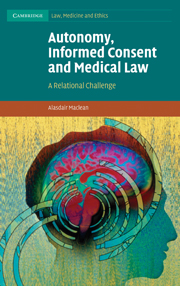Intimations of Mortality
In Intimations of Mortality, Barbara Reich offers an empirically-based critique of the failures of end-of-life communication and decision-making in the United States. Using England and Canada as occasional foils, Reich explores why U.S. physicians, patients, and families struggle to have the conversations necessary to provide seriously ill and dying patients with medical care consistent with their preferences. Reich also shows how a number of different factors –including payment mechanisms, liability fears, cultural phenomena, communication avoidance, death denial, and clinical uncertainty –impact physician-patient communication and medical decision-making, leave patients and families without the tools they need to make informed choices, and instead leave the default practices in place. Ultimately, this groundbreaking analysis unveils the interconnectedness of the many obstacles to better communication and decision-making in end-of-life communications and offers much-needed suggestions for improvement.
- Provides a detailed discussion of the ideal of informed consent law versus the realities of the decision-making and consent process in clinical practice
- Offers a comparative analysis of practices in England and Canada to explore how the health care system in the US influences end-of-life decision-making
- Helps readers to understand why informed consent as a legal doctrine and in clinical practice does not work well to support good decision-making at the end of life
Reviews & endorsements
'We are not good at talking about death. It's seen as embarrassing, awkward. We don't have the words or conventions. In her brilliant book, Intimations of Mortality: Medical Decision-Making at the End of Life, Barbara A. Reich explains how to talk about death well. Beautifully written, full of humanity and gentleness, the book draws from law, literature, philosophy and the experience of a life well lived to show us how doctors, patients and families can have the conversations they should have about death and the legal framework that can make them possible. This is a hugely important topic. We must do death better, and Reich offers a way of doing this.' Jonathan Herring, DM Wolfe-Clarendon Fellow in Law, Exeter College, University of Oxford
'An essential read for all those who seek to improve end-of-life decision-making – exposing the barriers to good and necessary communication, it enables us to dismantle them and ensure better deaths for ourselves and others.' Jocelyn Downie, James S. Palmer Chair in Public Policy and Law, Dalhousie University
'Professor Barbara Reich has written a thoughtful book to help us 'think well' about death and dying. The author moves from personal stories to the law, from medical dilemmas of brain death and vegetative states to mechanisms like boards and ethics committees to aid medical, family, and ethics decisionmakers. A pleasure to read, this book is perfect for academics and the general public alike.' Barry R. Furrow, Professor of Law, Drexel University Thomas R. Kline School of Law
'This insightful, clinically relevant volume does reveal the challenges and obstacles related to the quality of end-of-life care in the US. It should be read by all palliative care physicians, hospice social workers and chaplains, and those seeking a clinically applicable understanding of end-of-life care … Recommended.' A. W. Klink, Choice
Product details
March 2022Adobe eBook Reader
9781108804608
0 pages
This ISBN is for an eBook version which is distributed on our behalf by a third party.
Table of Contents
- Preface
- Acknowledgements
- 1. The Conundrum: How Much Medical Care is 'Enough'?
- 2. Our Health Care 'System': The Good, the Bad, and the Probably Unfixable
- 3. Autonomy and Informed Consent in the Real World
- 4. The Denial of Death and Its Sequelae
- 5. Disorders of Consciousness and the Meaning of Life
- 6. More Barriers to Good Communication
- 7. Palliative and Hospice Care: Misunderstandings and Lost Opportunities
- 8. Rational Apathy and the Role of Uncertainty
- 9. The Crucible: Making Decisions for Incapacitated Patients
- 10. Resolving Conflicts at the End of Life: Three Models
- 11. What's a Pragmatist to Do?
- 12. At the End of the Day
- Index.






